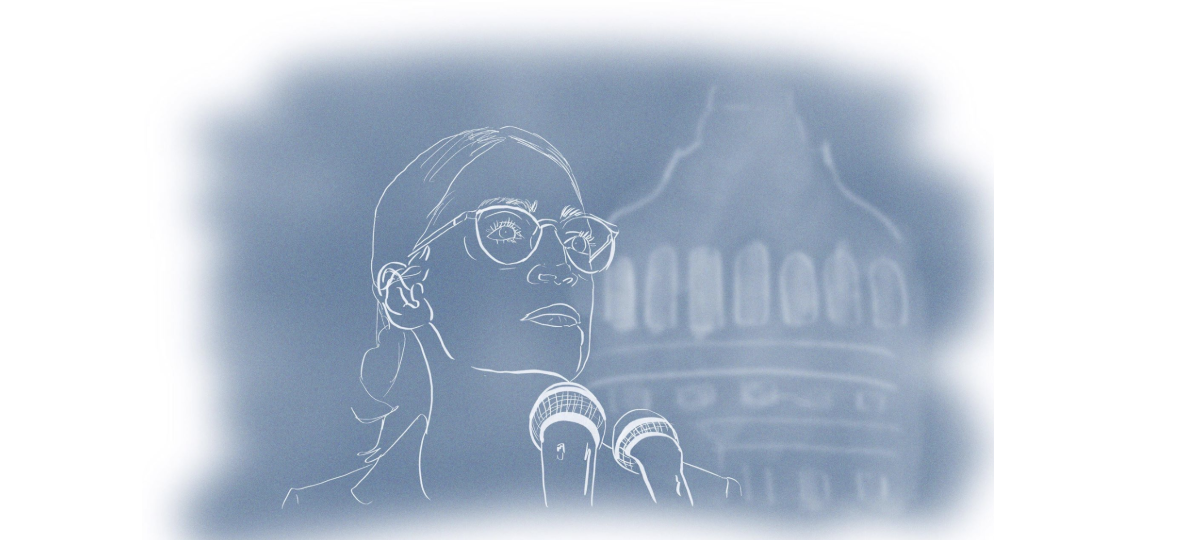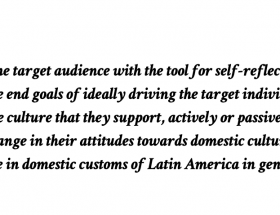As of November 2018, the United States has welcomed a variety of fresh faces into Congress. Among them is Alexandria Ocasio-Cortez, who has been making waves in the national (and international) political and media spheres since she assumed office in the House of Representatives several months ago. In the biggest upset victory of the 2018 midterm election primaries, Alexandria Ocasio-Cortez (also known as AOC) defeated ten-term incumbent Democratic Congressman Joe Crowley and went on to become the youngest woman ever to serve in the United States Congress at only 29 years old. Her term has only just begun, but her impact has been extensive.
On her first day on Capitol Hill, Ocasio-Cortez made an appearance in support of a demonstration taking place in Speaker of the House Nancy Pelosi’s office – activists from the Sunrise Movement were demanding support for a more comprehensive policy to address climate change. With this move, she expressed her commitment to addressing the global environmental crisis just hours into her time as a representative.
AOC sees climate change as the biggest national security threat facing the United States, a view not shared by many in positions similar to hers.
After her first month, she played a “lightning round game” in a meeting of the House Oversight Committee in which she shed light on political corruption in the US financial system. By asking a series of pointed questions contextualized within hypothetical situations, she highlighted how easy it is for the President of the United States and other high-ranking public officials to be “bad guys” and take advantage of the lack of legal limits on corruption in policymaking. With this game, she made a poignant commentary on the “fundamentally broken” system, exposing the ease with which US politicians may exploit flawed laws. The video footage has garnered millions of views on Facebook and YouTube and accentuates the new type of influence a social media savvy politician can have on the state of ethics in US politics.
These examples coupled with points raised in interviews with The Intercept and with Pod Save America demonstrate AOC’s commitment to fighting the dominant culture of hiding and excuse-making in politics. She advocates for dealing more directly with the biggest issues of our time and confronting problems head-on. She thinks there is a hunger for authenticity among the public, which needs to be met. In a very short time, she has become incredibly famous and influential.
However, the question remains whether this will be enough to push legislation forward.
By co-sponsoring the Green New Deal along with Senator Ed Markey, Ocasio-Cortez strives to address economic and racial injustice while tackling climate change at the same time. She is one of the few frontline politicians clearly recognizing the extent of the climate crisis and pushing for a new energy economy and more profound conversations about the environment. Editor of the New Yorker David Remnick has pointed out that AOC faces a significant amount of ridicule, hysteria, and criticism but still manages to maintain a sense of urgency and motivation to run towards the fire, and not away from it. In an imperiled democracy, AOC’s questioning of old habits and support of new thinking is a refreshing change of pace. While speaking about the Green New Deal, which is currently a resolution supported by 60 members of the House and 9 senators, AOC framed it as the civil rights movement of our time. Nowhere close to cutting global emissions levels to the extent needed to achieve the goals set in the Paris Climate Agreement four years ago, this deal aims to remake the economy and rapidly work towards a carbon-neutral system within 10 years. Until now, the Democratic Party has not developed a national strategy to address climate change – the Green New Deal might finally allow for a new and comprehensive approach.
AOC has been praised for being bold and breaking the
Unafraid of backlash and transcending the pettiness inherent in US politics, she is stirring up a fair amount of controversy.
The fact of the matter is that Ocasio-Cortez is bringing new fire and new fervor into Congress. She is demonstrating to young (and old) generations across the world that standing up and speaking up is not futile and can actually be a fruitful endeavor. In an article for The Atlantic, Megan Garber noted how AOC’s presence spotlights questions of membership, difference, disruption, representation, power, and belonging. Though she has been criticized for everything from her vocal and direct nature to the clothing she wears and the policies she supports, she continues to do things differently and hold her own. Her large social media presence gives her a different type of influence, one that is well-suited to involve young people in political discussion and action. As of February 2019, she has 3.1 million followers on Twitter, 2.2 million followers on Instagram (@ocasio2018), and 500,000 followers on Facebook.
With her outspoken character, her popularity, and her willingness to endorse ideas outside of the mainstream, she is influencing the political conversation in the United States.
With her fresh and forward approach, she represents a hopeful movement within a period that has proven to be relatively dark and challenging. Will her presence and her purpose ignite a tiny spark of change? Can the values AOC
art by: Mafer Martinez




